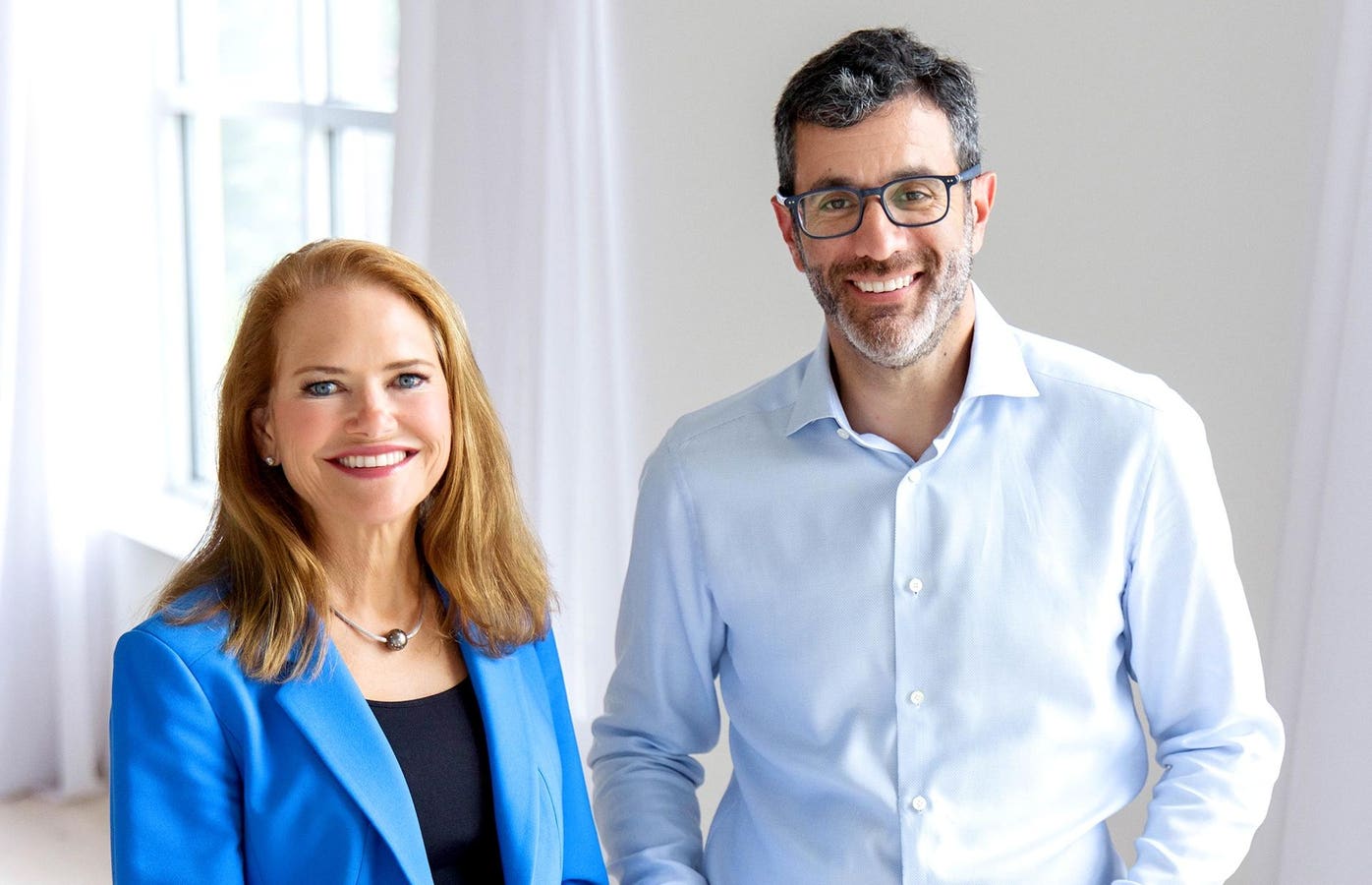InnovationRx is your weekly digest of healthcare news. To get it in your inbox, subscribe here.
Two former Verily executives, Amy Abernathy and Brad Hirsch, announced this week that they’ve launched a new venture, Highlander Health. The organization will have two separate arms: Highlander Health Partners, which will invest in mid-stage healthcare startups, and the Highlander Health Institute, which will provide grants and mobilize partnerships with a goal of both accelerating clinical trials and utilizing real-world data to learn more about the effectiveness of different types of treatments.
“Our overarching vision is really smoothing the path towards personalized healthcare for all,” Abernathy told Forbes. “And we see that one of the critical gates on that path is in clinical evidence generation.”
The way Highlander will do that, Hirsch explained, is to build “learning labs” that will have a goal of developing better ways to “bring together different data assets and real world data.” A key aspect of this, the pair emphasized, is to better understand the quality of different types of data and ways it can be collected and used to solve different healthcare problems. “During the last decade, a lot of companies have been innovating in this space,” Hirsch said. Which is part of what made them think this was the time to accelerate these data approaches further.
On the investment side, Highlander Health Partners will focus on “writing large checks,” Hirsch said. “We’re looking for companies that are either at the growth or middle market stage where they have a core team and a core product that has been accepted and adopted.” The investments won’t focus on life sciences companies or providers, but rather the companies that “bridge the two,” Hirsch said.
Highlander already has projects in the works, the pair said, with more announcements to come in October.
This Startup Aims To Regenerate Damaged Tissues With The Help Of AI And Lasers
Researchers are exploring the possibility of treating degenerative diseases like Parkinson’s with induced pluripotent stem cells (or iPSCs). These cells are made by reprogramming blood or skin cells until they start behaving like stem cells in embryos, meaning they can then be programmed to turn into basically any type of cell and be used as a treatment to replace damaged tissues.
But there is one catch: right now, creating these cells into useful tissues is a laborious process that can cost hundreds of thousands, if not millions, of dollars per patient. This makes both research and the development of potential cures an expensive prospect.
Cellino, a biotech startup founded in 2017, is developing self-contained units called cassettes that can grow personalized cell treatments for patients on site at their hospital. The potential for the technology, called Nebula, is huge: cofounder and CEO Nabiha Saklayen told Forbes that it could reduce manufacturing costs for iPSCs by at least 10 times. Now, the federal government’s Advanced Research Projects Agency for Health (ARPA-H) has given Cellino a $25 million grant to accelerate the development of Nebula.
Read more here.
Pipeline & Deal Updates
Medical Imaging: SpectraWAVE, which is developing imaging systems for treatment of coronary artery disease, raised a $50 million series B.
Antibodies: Radiant Biotherapeutics, which is developing an antibody platform for new disease treatments, announced a $35 million series A round.
Autoimmune Diseases: Candid Therapeutics, which is focused on treating autoimmune disorders, announced it’s launch with a $370 capital raise.
Kidney Disease: The FDA has granted full approval to sparsentan, marketed by Travere Therapeutics as Filspari, to treat adults with the kidney disease IgA nephropathy. The agency had previously granted the drug accelerated approval in February 2023.
Obesity: OrsoBio, which is developing a class of mitochondrial drugs for weight loss and other indications, raised a $67 million series B.
Recursion CEO Talks About Trial Results From AI-Designed Drug
Last week, Utah-based Recursion Pharmaceuticals announced results from the phase 2 trials of its experimental drug REC-994. This drug, which was in-part designed using the company’s AI models, is intended for the treatment of a disease called cerebral cavernous malformation that currently has no treatments. The company reported that the main goal of the study, which was to test its safety, was met.
“We expect that patients may take this drug for their whole lives,” CEO Chris Gibson told Forbes. “So we wanted to be really, really solid on the safety front.”
The clinical trial tested the drug with 62 patients, a third of whom got the drug at a 200mg dose, a third at a 400mg dose and the rest getting a placebo. For both of the two doses, the drug was safe. MRI tests of patients who received the 400mg showed a significant reduction in brain lesions created by the disease, though there wasn’t a statistically significant reduction in patient reported symptoms.
For its next steps, Recursion intends to work with the FDA on another study with more patients, and “explore additional doses, maybe higher doses” along with other signs of improvement in patients. The data from this trial, he said, will be invaluable in larger studies. ‘We learned a lot in this initial study,” he added.
Other Healthcare News
Novo Nordisk’s New Obesity Pill Beats Wegovy In Early Trial
Whooping Cough Cases Rise In U.S. Following Pattern Seen Worldwide
CDC Reports First Avian Flu Case With No Known Animal Exposure
Salmonella Outbreak In Eggs: Dozens Ill In These 9 States From Midwest Farm
Across Forbes
What Else We are Reading
With a win in lung cancer, biotech’s wealthiest outsider surfs to new heights (Stat)
It Matters If It’s COVID (The Atlantic)
Human embryo models are getting more realistic — raising ethical questions (Nature)
Read the full article here





